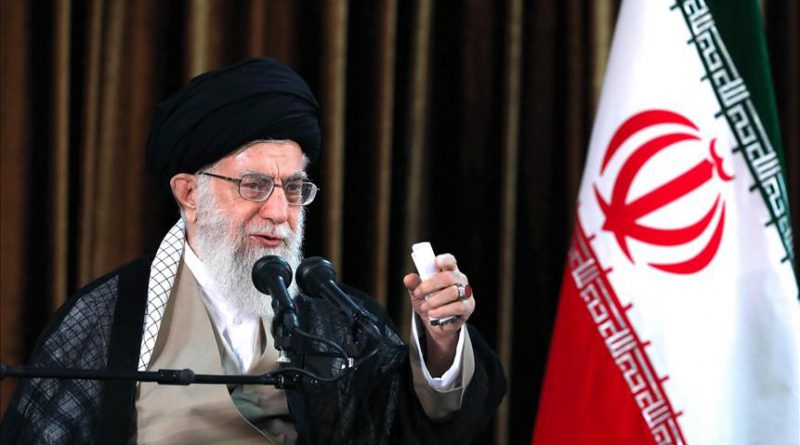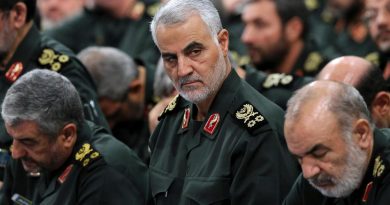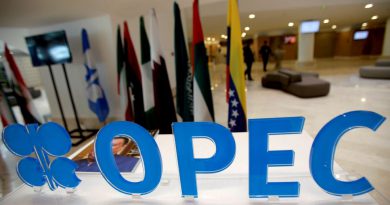How Iran Exploits and Fabricates Divisions Among Allies
by Irina Tsukerman
It remains to be seen whether the White House and other leaders ever wake up to the fact that countering information warfare is as important as coordinating any other military strategy.
Mixed messaging in response to Iran aggression in the Gulf
Mixed messages from the international community in response to Iran’s words and acts of aggression, including the announcement of a new breach in the nuclear deal and work towards enriching uranium, signal to the Islamic Republic that its threats and aggression may help the regime outlast even the “maximum pressure” policy of the Trump administration. The policy, focused heavily on sanctioning legal sources of Iran’s income, such as oil trade, would not by itself be enough to bankrupt the regime, experts reveal. In fact, Iran continues to benefit from illicit activities and criminal schemes, including drug trafficking through its proxies around the world. When those sanctions are not fully enforced by the international community, Iran has even more room to maneuver.
Since the United States designated the IRGC as a terrorist organization, Iran has been ratcheting up threats against the Trump administration, as well as the Anti Terrorism Quartet. In April, Iran threatened to block the Strait of Hormuz, crucial to most Gulf States’ oil exports. In early May, Emirati and Saudi oil tankers were attacked by what the US and other countries presented to the United Nations as a “state actor”, with Iran being the most likely beneficiary of such an act. That was soon followed by Iran backed Iraqi militia attacks with drones against Saudi oil targets, repeated Houthi attacks against civilian targets in Saudi Arabia, more attacks on Saudi oil tankers — this time directly attributable to Iran by multiple countries, the downing of a US drone, and many more threats. After US accused Baghdad of allowing the militias to launch drone attacks against Saudi Arabia, Iraq took measures to integrate the militias further into the military, and on the surface, to consolidate control over them. However, given the presence of pro-Iranian officials in the government, that is likely a cosmetic measure to stave off additional scrutiny.
The reaction to these developments from the United States and other countries has been tepid. Among media hysteria which presented a false dichotomy between a total war that would engulf the entire region and demand hundreds of thousands of troops from the United States and an immediate unconditional return to the negotiating table, the White House and its Middle Eastern allies have tried to calm and downplay the tensions. President Trump canceled a planned air-strike against Iranian targets in retaliation for the attack on the US surveillance drone, instead ordering a cyberstrike allegedly disabling Iranian rocket capabilities. Further reporting showed that the attack was actually in retaliation against an Iranian spy group, which has been targeting Western systems for some time. The computers struck by the US Command Center had been used to track the tankers that were attacked. Iran and China reacted by joining forces to conduct cyberwarfare against the United States. Independently, it further escalated attacks against American targets. Thus, although the US sent a signal that it would take proportional responsive measures to deter and prevent further attacks against its own targets, there was no cost attached to the attacks on the tankers.
Israeli-Palestinian conflict presents a challenge to a comprehensive regional defense strategy
US further imposed sanctions on assorted Iranian human rights abusers, including the Basij militias and the assets of the Supreme Guide Ayatollah Khamenei. Senator Ted Cruz filed a measure that would use the recovered assets to pay the expenses for the replacement of the downed drone. However, given that most of their assets are not within the US financial system, recovery on this symbolic measure may be difficult. And thus far, these has been the strongest responses to Iranian aggression. Israel’s Prime Minister Benjamin Netanyahu appealed to UK, France, and Germany to take measures in light of Iran’s unauthorized steps to further enrich uranium, comparing Iran’s activities to Nazi Germany’s Nazi occupation of the Rhineland. The reaction of the other members of the Joint Comprehensive Plan of Action (JCPOA) has been thus far tepid, even in light of the recent claims by the Mossad chief that Israel is in the possession of further evidence linking Iran to the tanker attacks.
Israel’s daring intelligence mission recovered and revealed to the world information about Iran’s nuclear programming; and continuing attacks on Iranian targets in Syria have slowed down the progress of the regime. However, Israel has not been able to destroy or reverse Iranian influence in its vicinity, nor to prevent Iranian outreach to the residents of the PA. Differences over the resolution of the Israeli-Palestinian conflict remain a point of contention with the Gulf States, preventing integration of defense strategy. Lack of strategic coordination among the Middle Eastern states in response to the growing threat from Iran continues to be exploited by the regime, spreading ideological influence in the region while also advancing its agenda of creating land routes that would ease transportation of troops, terrorists, weapons, and other materials from Iran to Iraq, Syria, Lebanon, JOrdanian borders and elsewhere.
Iran exploits differences of the ATQ in Yemen
Iran also looks to exploit internecine differences among the Anti-Terrorism Quartet, real and fabricated. The war in Yemen is largely at a standstill, as the Saudi-led Coalition, largely comprised of Yemeni forces on the ground struggles to respond to the increasingly sophisticated Houthi terrorists, trained and armed by Hezbullah and the IRGC. The situation has been complicated by the presence of other terrorist organizations such as Al Qaeda and ISIS, the spread of diseases, including cholera, mass famine, diversion of humanitarian aid by the Houthis which exacerbated the humanitarian disaster, and abduction and torture of Yemeni journalists covering the Houthi activities on the ground. Recent tensions in the Gulf have exacerbated concerns over internal security by KSA and UAE, which already have divergent interests in the resolution of the war in Yemen, with KSA focusing on eliminating the Iran-backed Houthi threats, and UAE being more concerned with the Muslim Brotherhood proliferation. Poor reporting of the ongoing strategic assessments strengthens Iran’s resolve in exploiting these issues to its advantage. For instance, following an agreed upon plan to realign its forces, UAE recently withdrew most of its forces from Yemen, in part to secure itself from any potential direct Iranian attacks.
However, the media has presented this issue as a lack of commitment to the war effort on the part of UAE, signaling to Iran the success of propaganda campaigns in the West to demoralize its adversaries. Part of those campaigns of course included an exaggerated likelihood of direct warfare in the Gulf aimed precisely at weakening the appearance of resolve by the Coalition inside Yemen and portraying this episode not as a tactical withdrawal but rather as a weakening of the alliance and a military and financial defeat for Saudi Arabia in particular. This messaging deliberately twists the reality to create an impression of disarray and fear among the ATQ to the rest of the world, making support for further action increasingly unlikely.
Officials eventually clarified these rumors, pointing out that the withdrawal is partial and coordinated with Saudi Arabia, but that follows an initial psychological impression made upon the Western public. In similar vein, the Western media played into Iran’s interest in creating an appearance by creating an impression that UAE has been distancing itself from the US and KSA commitment in confronting Iran over the tanker attacks, by claiming that UAE statement from Moscow ran parallel to the accusations of other nations pointing to Iran. In reality, the statement was coordinated with the US official visiting UAE prior to the Moscow trip, and at the time none of the countries explicitly named Iran in their presentation to the United Nations. But the propaganda war blow has been struck, never mind the facts. And all of that has been confounded by the fact that Egypt has had to contend with other threats, and therefore has not viewed a response to Iran as an existential danger or a priority.
Iran Benefits from the Political Differences between France and Germany
While the commitment of the Gulf States to confronting the threat in their backyard remains indisputable despite these attacks, the case for European uncertainty has been much easier to make and exploit. France, Germany, and others have warned Iran over the nuclear breach and escalating aggression, but have stopped short of proposing sanctions or outlining a clear path to withdrawal from JCPOA. Instead, France’s President Macron and Iran’s President Rouhani agreed to consider conditions for returning to talks.
A German Foreign Ministry official has blamed France for much of the inaction on IRan’s worst behavior. Amid strains between France and Germany over financial issues, and Germany’s ongoing payments of France’s obligations to NATO, the European media, nudged by the French government has sought to distract from France’s close alliance with Iran and its financial facilitator Qatar. Although Total and Peugeout, among other French companies have been forced to leave Iran over a threat of secondary sanctions by Iran, France has welcomed many Iranian businessmen to its domestic production furthering historic ties with the Islamic Republic, which go back to Khomeini’s place of refuge in France before the Islamic Revolution. France has welcomed Qatari investments, buying gas from Qatar — which shares its gas field with Iran, and building the National Museum in Doha, while Qatar has invested into a soccer club worth $250 billion in Paris, among other business ventures, all of which to the benefit of partnership with Iran. France has also welcomed Qatari sponsorship of mosques and radical Iranian imams, who have played a key role in attracting migrants from UK. By contrast, the FM official points out, Germany is much more restrictive about foreign investments and does not have close political ties with Iran.
Indeed, in the recent warnings to Iran over its aggression and nuclear threats, the Foreign Minister indicated that further steps in that direction could lead to a downgrade in relationship. Germany is taking steps to prepare the population to a turn in that direction by the recently publication of a German intelligence report, which reveals that Iran has used the Berlin embassy to plan a terrorist attack against the Iranian opposition group MEK (mirroring similar foiled attacks in Paris and Albania, and the US of Iranian embassy in Algeria to arm the Polisario separatists, as well as recent attempted assassinations of the Ahwazi opposition members in Denmark).
The report further revealed the surveillance by Iranian spies of Jewish and Israeli targets in Germany. Publication of such sensitive information signalsa plan for the government to turn towards much bigger policy steps to counter Iran aggression. At the same time, however, the mixed messaging that can be exploited by Iran is evident in the fact of Germany, France, and others remaining committed to advancing a financial plan to circumvent US sanctions through an alternative banking system, still in development but which may likely itself attract US sanctions. Such public statements exacerbate the differences between the US and the EU over confronting Iran and implementing Trump’s “maximum pressure” campaign — and that’s without considering any further serious retaliatory actions, such as covert intelligence operations targeting designated Iranian terrorist entities.
Furthermore, Germany refused to put troops on the ground in Syria, requested by President Trump, further signaling to Iran that the West is not yet serious about countering Iranian influence there. Until these differences are resolved or set aside, and a united front on at least one major Iran-related action plan is developed — whether in Yemen, Syria, Iraq, Lebanon, the Gulf, drug trafficking, or the abuse of the financial system — Iran will continue to advance its hegemonic agenda with a single minded resolve, growing the ideological support through aggressive recruitment of militias and brainwashing of the disaffected and the ignorant in schools and mosques, using the Western media as a tool of exacerbating apparent differences among the allies, sowing disarray, and creating appearances of divisions even when there are none.
Iran has become an expert in exploiting ideological vulnerabilities and planting semi-fabricated stories. It remains to be seen whether the White House and other leaders ever wake up to the fact that countering information warfare is as important as coordinating any other military strategy against what would otherwise be a paper tiger with poor military capabilities and many internal fissions of its own.
Irnina Tsukerman is a New York based human rights lawyer and national security analyst. She can be followed under @irinatsukerman.
Article first published in Arabic on Independent Arabia.



